Will Your Restaurant be Held Liable for Accidents? How Much Can Restaurant Insurance Help?
 Let’s say you own a restaurant. One night, a group of friends enjoy dinner and a few drinks at your restaurant. They decide to go to a club where they dance and consume more alcohol. Then, they go to a corner pub to wind down with a few more drinks. On the way home, one of those friends causes an accident that injures or – God forbid – kills someone in the process.
Let’s say you own a restaurant. One night, a group of friends enjoy dinner and a few drinks at your restaurant. They decide to go to a club where they dance and consume more alcohol. Then, they go to a corner pub to wind down with a few more drinks. On the way home, one of those friends causes an accident that injures or – God forbid – kills someone in the process.
Who is responsible? You and your restaurant? The club? The pub? That depends on which state your restaurant is located. If it’s in Nevada, none of the establishments will be held responsible for injuries caused by intoxicated patrons; all of the responsibility lies with the person directly causing the injury. However, many other states place the responsibility elsewhere.
Pennsylvania’s Dram Shop Statute
In Pennsylvania, all of the establishments could be held responsible – even your restaurant. Under Pennsylvania’s Dram Shop Statute, a licensed drinking establishment can be held liable for injuries caused by intoxication if the establishment served alcohol to a visibly intoxicated individual or to a minor.
Not only could you face administrative and criminal fines and penalties, but you could also be sued in civil court for damages that person might cause after leaving your establishment. You could lose your liquor license. If you serve alcohol to a minor, the establishment's owner, operator, or the server could face a term of imprisonment of three months to one year, a fine of up to $5,000, or both.
Determining whether a server should have realized the extent of a patron's intoxication is fuzzy. How the alcohol affects a person is what matters, not how many drinks were consumed.
When is a Driver Considered Legally Drunk in Pennsylvania?
- Non-commercial drivers age 21+ are considered legally drunk when their blood alcohol level is .08 or more.
- Drivers of commercial vehicles are legally drunk when their blood alcohol concentration is .04 percent or greater.
- School bus drivers are legally drunk when their blood alcohol level is .02 or more.
- Drivers under 21 are legally drunk when their blood alcohol concentration is .02 or more.
How to Protect Yourself, Your Employees, and Your Business
If your establishment serves alcohol, all of your servers and managers should undergo some type of training in alcohol service, such as the National Hospitality Institute’s Techniques of Alcohol Management or Pennsylvania’s Responsible Alcohol Management Training Program (RAMP).
RAMP, created by the Pennsylvania Liquor Control Board, helps licensees – such as restaurants, hotels, clubs, and distributors - and their employees serve alcohol more responsibly. RAMP certification offers practical advice on detecting fake IDs, using the FEAR method of carding, and identifying a “visibly intoxicated patron.”
But, what if that person was not intoxicated when he or she left your restaurant and is of a legal drinking age? You could still be held responsible. If an incident does occur, your best defense is a written policy and documentation that you adhere to that policy. Review the policy with your employees regularly.
Liquor Liability Insurance - Important Restaurant Insurance Protection
Liquor liability insurance can be an invaluable form of restaurant insurance protection. It can help protect your restaurant business from highly damaging lawsuits into the millions of dollars resulting from property damage and injury caused by intoxicated customers who purchased alchohol in your establishment.
These policies may differ significantly by insurance provider in terms of costs and coverage details. This is why you should consult the independent insurance professionals at American Insuring Group. We offer policies from competing insurance companies. We'll help you find the right restaurant insurance policy at the right price.
 Contact an American insuring Group agent at (800) 947-1270 or (610) 775-3848 to find more ways to protect your business with the right restaurant insurance.
Contact an American insuring Group agent at (800) 947-1270 or (610) 775-3848 to find more ways to protect your business with the right restaurant insurance.



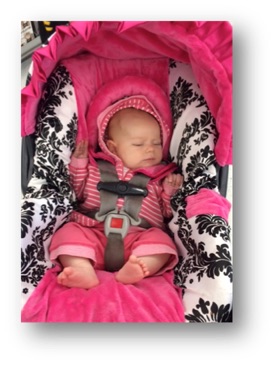 Business insurance is important because if you’re a small business owner, chances are good that you have a lot of heart, sweat, and maybe even a few tears invested in your business. Sometimes, your business becomes your “baby” – something that you want to protect from danger, just like you protect your family. Aside from getting good commercial insurance coverage, how do you go about protecting “your baby” from outside threats, such as fire, flood, or theft?
Business insurance is important because if you’re a small business owner, chances are good that you have a lot of heart, sweat, and maybe even a few tears invested in your business. Sometimes, your business becomes your “baby” – something that you want to protect from danger, just like you protect your family. Aside from getting good commercial insurance coverage, how do you go about protecting “your baby” from outside threats, such as fire, flood, or theft? 
 Managed health care started to become commonplace in the US after the enactment of the Health Maintenance Organization Act of 1973, which was created in an attempt to control health care medical insurance costs by stimulating greater competition within health care markets. It marked a significant shift in the US health care industry by introducing the concept of for-profit health care to an industry that was traditionally not-for-profit.
Managed health care started to become commonplace in the US after the enactment of the Health Maintenance Organization Act of 1973, which was created in an attempt to control health care medical insurance costs by stimulating greater competition within health care markets. It marked a significant shift in the US health care industry by introducing the concept of for-profit health care to an industry that was traditionally not-for-profit. 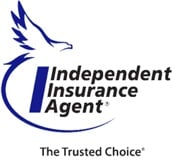 For more information about MCOs and Worker’s Compensation Insurance and to find the right insurance for your business, please
For more information about MCOs and Worker’s Compensation Insurance and to find the right insurance for your business, please  Builder’s Risk Insurance (a.k.a. Course of Construction Coverage) is property insurance that covers damage to a building during construction. It may cover just the structure itself, or it can include materials, fixtures, and/or equipment being used in the construction or renovation of the building.
Builder’s Risk Insurance (a.k.a. Course of Construction Coverage) is property insurance that covers damage to a building during construction. It may cover just the structure itself, or it can include materials, fixtures, and/or equipment being used in the construction or renovation of the building.  Whether you need general contracting insurance, contractor workers’ comp, builder’s risk insurance, or any other type of insurance, we have you covered. We’ll take a close look at your business; recommend the right insurance for you, then (after shopping many competing insurance brands) offer you the best insurance protection at the best price.
Whether you need general contracting insurance, contractor workers’ comp, builder’s risk insurance, or any other type of insurance, we have you covered. We’ll take a close look at your business; recommend the right insurance for you, then (after shopping many competing insurance brands) offer you the best insurance protection at the best price.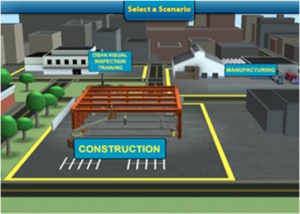
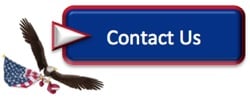 Contact us
Contact us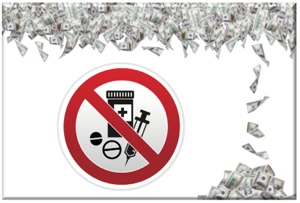 The National Council on Alcoholism and Drug Dependence (NCADD) estimates that drug abuse in the workplace costs business owners $81 billion annually.
The National Council on Alcoholism and Drug Dependence (NCADD) estimates that drug abuse in the workplace costs business owners $81 billion annually.  A drug-free workplace initiative can create a healthier workforce and improve your company’s bottom line, including lowering your workers compensation insurance claims and costs.
A drug-free workplace initiative can create a healthier workforce and improve your company’s bottom line, including lowering your workers compensation insurance claims and costs.  What About Dishonest Worker's Comp Claims?
What About Dishonest Worker's Comp Claims?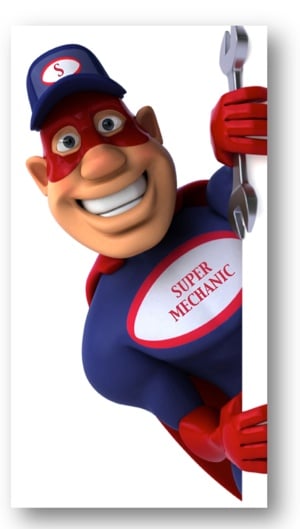 Whether your company owns one commercial vehicle or an entire fleet of vehicles, regular vehicle maintenance is one of the best things you can do to protect your employees, your property, and your business.
Whether your company owns one commercial vehicle or an entire fleet of vehicles, regular vehicle maintenance is one of the best things you can do to protect your employees, your property, and your business. With the current sluggish economy, more and more companies are turning to business consultants to help cut spending, maximize productivity, and develop more cost-efficient practices. Business consulting services come in a variety of shapes – from sales and marketing consulting to technology consulting – and sizes - from working out of a home office to working in a large consulting agency.
With the current sluggish economy, more and more companies are turning to business consultants to help cut spending, maximize productivity, and develop more cost-efficient practices. Business consulting services come in a variety of shapes – from sales and marketing consulting to technology consulting – and sizes - from working out of a home office to working in a large consulting agency. 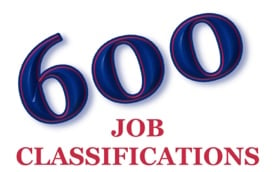 Worker's compensation insurance, job classifications, job risks and insurance premiums are all related. Job classifications, which are based on specific ratings and descriptions for all types of jobs, are determined by the National Council on Compensation Insurance (NCCI), the insurance industry’s ratings bureau. There are more than 600 different job classifications, and more are being added all the time, so it isn’t surprising that 30-35 percent of businesses have classification errors. But have you considered the potential impact on your business insurance costs that an erroneous job classification can bring?
Worker's compensation insurance, job classifications, job risks and insurance premiums are all related. Job classifications, which are based on specific ratings and descriptions for all types of jobs, are determined by the National Council on Compensation Insurance (NCCI), the insurance industry’s ratings bureau. There are more than 600 different job classifications, and more are being added all the time, so it isn’t surprising that 30-35 percent of businesses have classification errors. But have you considered the potential impact on your business insurance costs that an erroneous job classification can bring? Don’t wait for your
Don’t wait for your 



